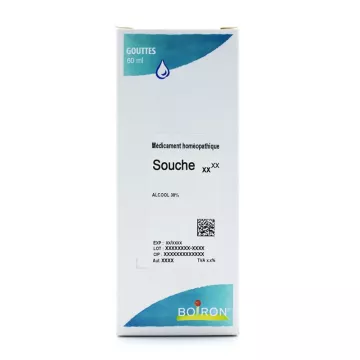





What is renal colic?
Renal colic is a sharp, intense pain in the side of the back, often radiating to the lower abdomen and genitals. It is caused by the presence of kidney stones that obstruct the flow of urine in the urinary tract, leading to increased pressure in the kidney and inflammation of the surrounding tissues.
How can I recognize the symptoms of renal colic?
The main symptoms include sudden, severe pain, frequent urination, cloudy or blood-tinged urine, nausea and vomiting. The pain may change position and vary in intensity. It's crucial to listen to your body and consult a doctor if these symptoms appear.
What are the main causes of kidney stones?
Kidney stones form when urine contains a high concentration of substances such as calcium, oxalate and uric acid, which crystallize and form stones. Low water intake, a diet rich in protein, salt or glucose, and certain medical and genetic disorders can increase the risk of stone formation.
How can kidney stones be prevented?
Kidney stones, and therefore renal colic, can be prevented by ensuring adequate hydration (at least 2 liters of water a day), a balanced diet low in salt and animal proteins, and by limiting oxalate-rich foods for those at risk. Regular physical activity is also recommended.
What treatments are available?
Treatment of renal colic depends on the size and location of the stones. Options include pain management with anti-inflammatories or antispasmodics, shockwave lithotripsy to break up the stones, or surgery in more complex cases. Medical follow-up is essential to prevent recurrence.
How does renal colic affect quality of life?
The pain associated with renal colic can significantly affect quality of life, limiting daily activities and general well-being. Effective pain management and a proactive approach to prevention are crucial to minimizing its impact.
How is renal colic diagnosed?
Diagnosis of renal colic usually begins with a physical examination and analysis of symptoms. The doctor may order urine tests to detect the presence of blood or infection, as well as blood tests to assess kidney function. Medical imaging, such as kidney ultrasound or CT scan, is often used to pinpoint the exact location and size of kidney stones.
What diet should I follow to reduce the risk of renal colic?
To reduce the risk of developing kidney stones, a diet low in salt and animal proteins is recommended. It is also advisable to increase intake of fruit and vegetables, which are rich in magnesium and potassium, helping to prevent stone formation. Those at risk should limit foods rich in oxalates (spinach, beet, walnuts). Drinking plenty of water to dilute urine is essential.
What role does hydration play in preventing renal colic?
Hydration plays a key role in preventing kidney stones. Drinking at least 2 to 3 liters of water a day helps dilute urine, reducing the concentration of minerals that can form stones. Clear, abundant urine is a good indicator of adequate hydration. For people who have already formed stones, it may be advisable to drink even more.
Can I take part in physical activity if I suffer from renal colic?
Yes, moderate physical activity is recommended, even in cases of renal colic, as it can help to ease the passage of small stones. However, it is important to consult a doctor before starting or continuing an exercise program, especially if the pain is severe. Gentle activities such as walking or yoga can be beneficial.
How can I manage the pain associated with renal colic at home?
To manage pain at home, it's advisable to take non-steroidal anti-inflammatory drugs (NSAIDs), such as ibuprofen, if there are no medical contraindications. Warm compresses on the painful area or hot baths can also relieve pain. It's important to remain mobile to encourage the movement of stones along the urinary tract. If the pain is unbearable or accompanied by symptoms such as fever, urgent medical attention is required.